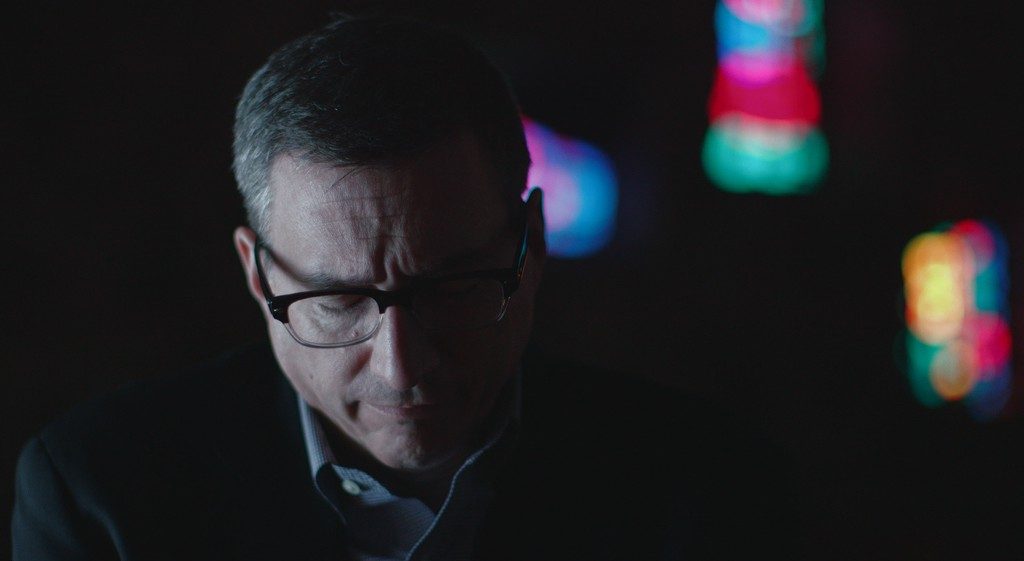Tribeca Film Festival alumna Abigail Disney is an Academy Award nominee, philanthropist and activist based in New York. Her passion for women’s issues has led her to producing films. Her film “Pray the Devil Back to Hell” won Best Documentary Feature at TFF 2008. It went on to screen in 60 countries. (Tribeca Film Festival)
“The Armor of Light” will premiere at the 2015 Tribeca Film Festival on April 18.
W&H: Please give us your description of the film playing.
AD: “The Armor of Light” explores the relationship between pro-life evangelicals and American gun culture by following a longtime pro-life activist who is beginning to have second thoughts about the consistency of his own rhetoric [and butting heads with] his own allies on the right wing.
W&H: What drew you to this story?
AD: For years, I have been bothered by this inconsistency [of the pro-life, pro-guns stance] and wondered why it seemed to bother no one else. A society that feels life is the most precious thing [jars against] a society that prefers death over theft, over loss of pride, over inconvenience, and so much else.
After Sandy Hook, when it really seemed like high time to look differently at this issue, when it really seemed abundantly clear that what we have in this country is a fatally broken political dynamic around guns and safety, I felt I had to act.
W&H: What was the biggest challenge in making the film?
AD: My biggest challenge was managing my own feelings about the pro-life/pro-choice debate. I had come into the conversation with the minister in our film with a conscious desire to be a peacebuilder — to reach out across a political gulf that divided us and to deliberately seek and inhabit the common ground we shared.
But once in a while, there was a moment when I felt so angry, and so defensive of my own point of view, that I had a hard time not shouting in disagreement. This came up again and again in the edit as well. I had promised everyone we filmed that they would be treated with respect, and it is really hard not to want to undercut someone you disagree with when you have all the power in the world to do so in an edit room!
W&H: What do you want people to think about when they are leaving the theatre?
AD: I want people to ask themselves, “Have I thought about guns from a moral — as opposed to political — perspective?” “Has my country done its moral homework?” “How might this discourse change if I truly valued every human life?” It is crazy to think that one film can change the deep divide this country is living on in terms of the gun issue, but I do hope to get people to sit down with peace and love in their hearts and to at least try to have conversations they’ve never had before about how to bring their best and highest selves to this incredibly serious, life-or-death issue.
W&H: What advice do you have for other female directors?
AD: This film was hard for me to start because it demanded that I trust my own judgment. I had an idea in my head, and I’d never heard anyone else talk about it! What if I was crazy? What if no one talked about it precisely because it was a stupid idea? This was incredibly hard. But as I pushed forward, every single day was slightly more satisfying than the one before it. My advice to female directors is not to wait until you feel like your ideas have been pre-certified or until you think you’ve gotten some approval for them. Then it’s too late! Follow your gut. That’s hard to do, but the only way to be original.
W&H: What’s the biggest misconception about you and your work?
AD: I worry that people will think that I have done what I’ve done just because I have access and resources. I hope people will know that I’m just as scared and lonely as anyone else!
W&H: How did you get your film funded? Share some insights into how you got the film made.
AD: Well, this is crazy and no one can do this, usually, but I self-financed it from top to bottom. I couldn’t take money from the usual sources because the usual sources would have wanted me to do it the usual way. But also, I worried that if I took money from the usual sources, no conservative would ever have trusted me enough to talk to me.
W&H: Name your favorite woman-directed film and why.
AD: “A League of Their Own.” I loved it partly because I was a huge jock in high school and college and Penny Marshall really nailed it about what sports can mean to a girl — I wept, to be honest. But my daughters loved it too. They didn’t even really like sports that much. They just couldn’t get over the way these girls just did not need men to kick ass. They didn’t dislike men; they just didn’t need them. As compared with a Disney princess, that’s a pretty bold message for a kid!







